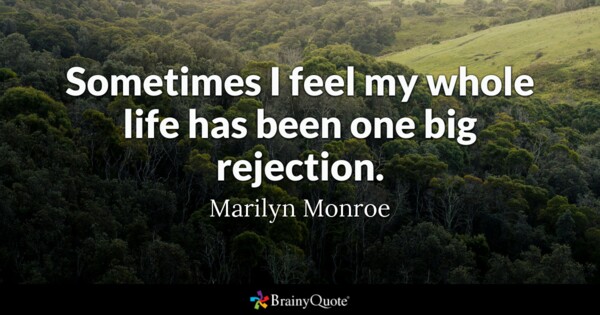How to deal with rejection?
How To Deal With Rejection? :- When we are not included, accepted, or approved of, we experience feelings of rejection. Being rejected results in the loss of something we previously had or desired. And rejection, like abandonment, leaves us feeling unwelcome and unworthy of love and respect from others.
In general, the greater the frequency with which you were rejected and the younger you were when you were rejected, the greater the impact on your life.
Young children are particularly vulnerable because they are still in the process of developing their self-concept and sense of self-worth. Because young children lack the reasoning skills and life experiences to fully comprehend all of the possible reasons for being rejected, even if people did not expressly tell you that you are inadequate or unlovable, you may have come to this conclusion when you were rejected.
I’m putting our 4 ways using which you can minimize the fear and effect of rejection on you.
Table of Contents
Acknowledge and grieve the loss

Rejection is defined as the loss of something or someone that you had or hoped to have in your life. When we are rejected, we often feel ashamed or embarrassed, and we want to put the experience behind us as quickly as possible. This can lead to us suppressing our feelings, denying that we are in pain, or engaging in self-destructive behaviors such as excessive drinking or overeating in order to cope.
Grieving entails acknowledging and feeling your emotions, rather than denying, suppressing, or numbing them. Crying, journaling, therapy, exercising, being in nature, extra self-care, and creating goodbye rituals can all be beneficial techniques. Allow yourself the space and time to acknowledge and process your emotions. The duration and intensity of your grief will be determined by what you have lost; it could last an hour or you could be grieving for months over a major rejection, for example.
Don’t hold it against yourself
It’s only natural to be curious about why you were turned down. My experience, however, has shown that there aren’t always obvious reasons for rejection. And, when we don’t have answers, we tend to blame ourselves; we believe that we’ve done something wrong, that we weren’t good enough, that we’re unlovable, difficult, or stupid, among other things. Keep in mind that you may have been socialized from an early age to believe that you are insufficient and to blame yourself for being rejected by others. These are beliefs that you can choose to reject at this point. In your thirties and forties, you’re better prepared to consider alternative hypotheses or alternative reasons for rejection. There are a plethora of reasons why people are rejected, and even the most attractive, intelligent, accomplished, and likable individuals can be rejected for a variety of reasons.
It can be beneficial to examine your behavior and how you present yourself from time to time; however, rejection does not always imply that you did something wrong on your part. Sometimes you don’t get the job because the CEO decided to hire his niece instead of you, or a first date doesn’t call you back because he is insecure about his decision to hire you. It is not always about you, and it is unfair to place blame on yourself or accept responsibility for events that were out of your control or assume that you were at fault for something that was not your fault.
Increase your ability to withstand adversity

Your ability to recover or bounce back from a setback is referred to as your resilience. And psychologists believe that it is a skill that can be acquired over time. Have an open mind, avoid all-or-nothing thinking, concentrate on solutions and what you can learn from the experience, seek support, maintain a sense of humor, remember your strengths and see mistakes as necessary steps on the road to success, and practice self-care are all factors that contribute to resiliency.
Continue to put yourself in front of others
Writers and artists are well-known for their ability to persevere despite being rejected time and time again. The fact that they accept rejection as a necessary part of the process, as well as the fact that it is necessary to get published or launch a successful career, contributes to their ability to do so. In addition, because they consider it to be normal and necessary, they do not take it personally. This type of acceptance, as well as repeatedly “putting yourself out there,” can help to make rejection less painful for the person receiving it.
Combining grieving the loss you feel when rejected with refraining from assuming you were the source of the rejection, focusing on your own strengths and resiliency, and accepting that rejection is a normal experience can help you cope more effectively with rejection.
you can also read our collection of some motivational quotes for life.

